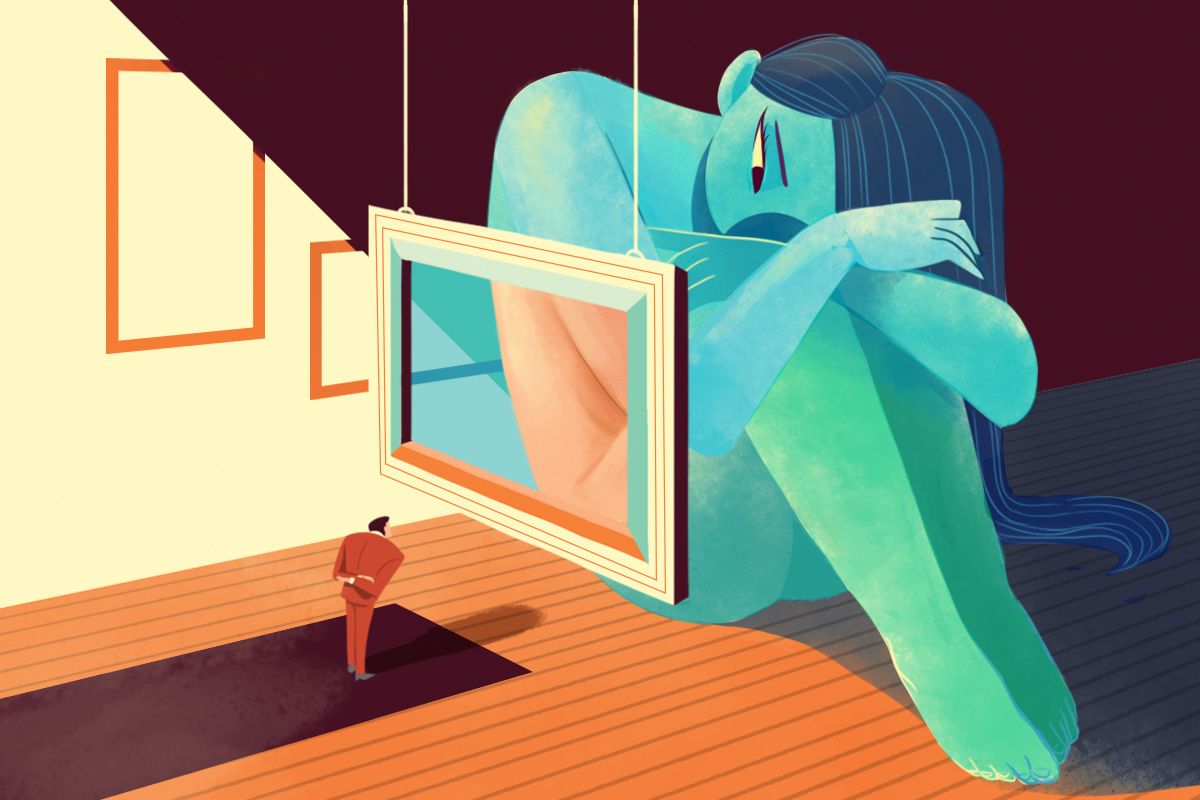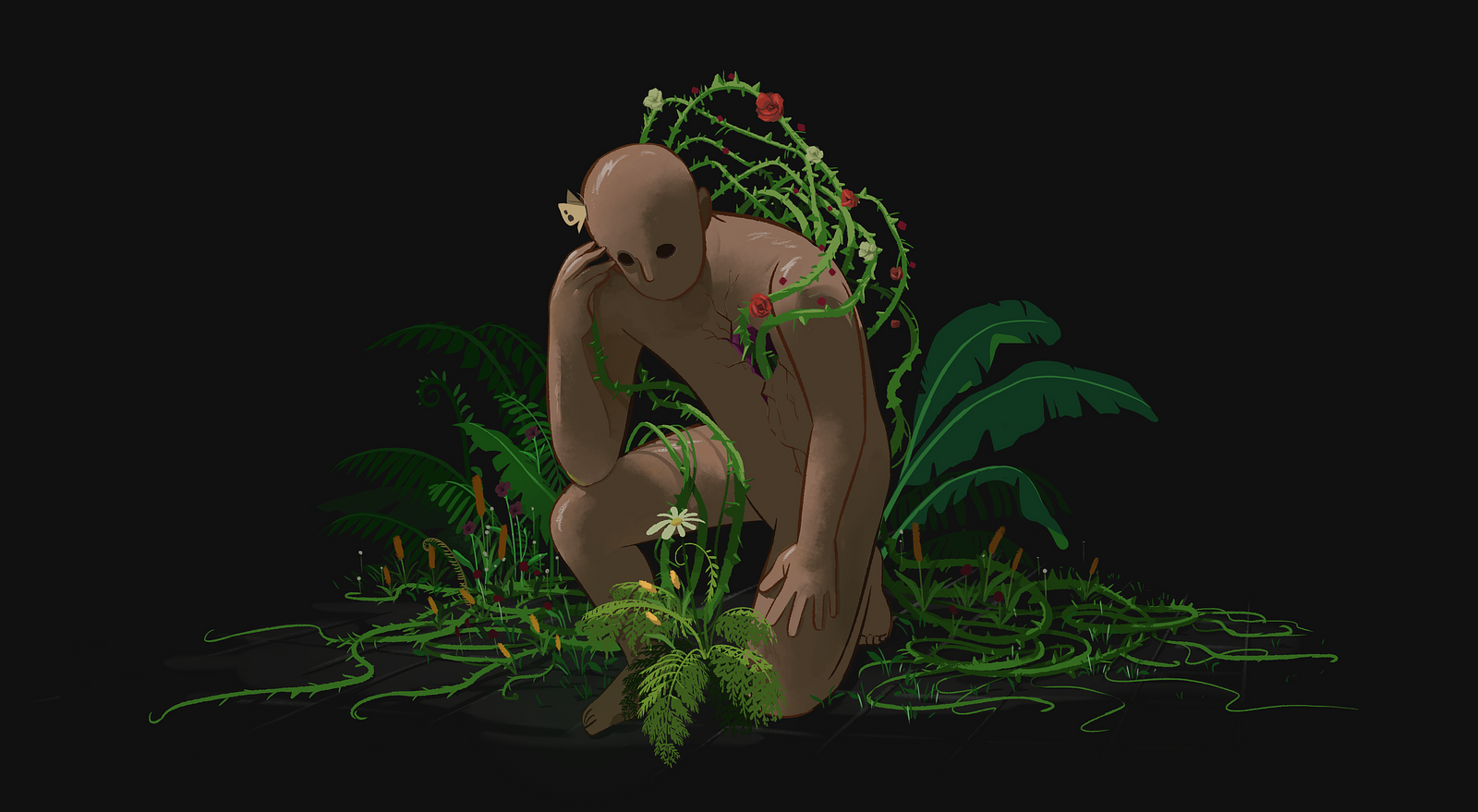It’s not often that a philosopher of Alain de Botton’s status visits Vietnam, so it was no surprise that all 50 seats on the upper floor of Toong Coworking Space were occupied, with most tickets snapped up long before the event.
For the uninitiated, De Botton is a Swiss-born British writer and philosopher whose work spans everything from love, work and travel to happiness, sex and religion. He left a Ph.D. in French Philosophy at Harvard in order to write for the general public, and has since published 15 books. Each one dissects complex issues and makes them relevant to everyday life. His first published book, Essays on Love, has sold over two million copies worldwide, and his YouTube channel The School of Life has nearly four million followers.
Before arriving in Vietnam, his local publishing company, Nha Nam, convinced him that “the only thing Vietnamese people really want to hear about is love,” and with a room of eager faces awaiting De Botton’s lecture, they might well have been right.
“Is anyone in the room married and happy?” he began and, surprisingly, only one person raised their hand. For most of human history, he explained, nobody got married to be happy. “You married for reasons of tradition, status and children. Personal happiness and attraction was not part of the goal at all.”
“It’s really only in the last five minutes of human evolution,” he continued, “that we -humanity has embarked on a really unusual project, which is the project of trying to be happy in relationships, and not just for a summer, but for 20, 30, or 50 years, and with children involved.”
This is a crucial element of De Botton’s dispute with modern love. Contemporary life, he says, has two fundamental ideas – that we will marry for love and work for satisfaction, and these cause “great difficulty.”

Photo courtesy of Nha Nam's Facebook page.
This is also a very new problem. He suggested that if any young people in Vietnam today were to ask their grandparents about searching for gratifying love, they wouldn’t understand. “Of course you don’t love your partner,” they would say. “Why would you love your partner? You’ve been married 30 years.”
The romantic notions De Botton takes issue with first came into being in the middle of the 18th century — in the minds of writers, artists and poets, and gained the name ‘romanticism.’ This term led to the idea of a ‘soulmate,’ or being perfectly understood by another person. “What I want to argue is that romanticism has been a disaster for love, and if we want to be happy in relationships, we should probably say goodbye to romanticism,” he said.
The idea of one person intuitively understanding and connecting with another without the filtering of rationality is particularly problematic for De Botton, and his reasons for this delve into the realms of psychotherapy.
“We will see someone on the bus, and suddenly we’ll get that special feeling — I’m sorry to disappoint you, but instinct is not a good idea,” he said. “When we fall in love as adults, we fall in love with a memory of how we were loved as children. And as children, we were often loved, not just in kind, generous and beautiful ways — maybe we loved someone who was depressed, or went away for a long time or mocked us.”
De Botton went on: “As adults, we are not free to fall in love with anyone. We have a love map, which might not always be healthy. Love for adults is the re-experiencing of the love we felt as children. When we become adults, we sometimes become attracted to people not who are very nice to us, who are a bit difficult. And this is because one of the things we subconsciously want in love is to suffer in the same way we suffered as children. For many of us, love is not about niceness, because that is not how we grew up.”
He then picked apart the charming belief that people should accept everything about their partner. For De Botton, this is an “impossible idea — no one should be loved for everything they are. We have sides to us that we shouldn’t expect our partners to accept.”
Sulking, he explained, has become a global epidemic — that moment when your partner has upset you but you don’t want to tell them why, because you think they should know what they have done, so you sit there and don’t say anything. “If you think someone can understand you without you needing to speak,” he said, “you’re going to have a terrible relationship. You need to speak. This doesn’t sound very romantic but, by the way, everything that sounds un-romantic is good for love.”
There were moments when his list of concerns painted a depressing portrait of modern love, but he was keen to stress that it is possible to adapt. “Love is not just a feeling,” he said, “love is a skill, and it’s a skill that needs to be learned. There are tactics and techniques, and if you learn them, it is not a disaster, but the beginning of true love.”
His tips for coping were seasoned with comedy, which made them easier to digest. “After living with someone for a number of years,” he said, “it’s easy to think of someone as an idiot — ‘Oh god there’s the idiot again.’ But if you think about it, many TV shows have lovable idiots. It’s an enormous psychological progress to move from thinking of your lover as an idiot to thinking of them as a lovable idiot. There should be government classes on this”.
“When children throw food on the floor,” he added, “you don’t say, ‘I’ve had a bad day at work and now you’ve thrown all the food on the floor, I hate you and you hate me and everything is terrible’ — you don’t say this. You think, maybe the child didn’t sleep enough, maybe it’s too hot — your imagination searches for reasons why the child is being difficult. When it comes to an adult we tend to assume more quickly that they are trying to hurt us. Imagine if we could respond to our lovers with the same patience, imagination and forgiveness as we apply to children.”

The book signing that followed his talk.
Following his talk, he took questions from the floor, and revealed a clear knack for taking fairly ill-thought-out questions, including my own, and throwing them back in beautiful forms. Having said that, his response to how well a book that is rooted in European notions of love would translate for a Vietnamese audience left a little to be desired.
Which leads on nicely to the fact that De Botton is not without his critics. Black Mirror writer Charlie Brooker claimed De Botton merely states "the bleeding obvious," while journalist Victoria Beale once called him a pseudo-philosopher who might appeal to "amateur intellectuals with self-improving impulses…who might read The Guardian on an iPad [and] buy ethical chocolate."
Yet that which appeals to middle-class British also appeals globally — a number of Vietnamese audience members noted both his capacity for insight and his accent. De Botton is a river of softly-spoken, received-pronunciation English, with a timbre that serves as a balm on dreary days. But it is his intuitiveness about life and relationships and his intellect that has gained him millions of followers. And besides, there’s nothing wrong with being more profound than Oprah.
Of course, his lectures and books are merely the reflections of one man’s opinions, beliefs and value systems, yet it remains undeniable that his perceptions resonate with people around the world and, for many, help them improve their relationships and outlook. As one friend put it, “He has completely reshaped my dating life.”
For the Vietnamese in the audience, the event marked an opportunity to meet a global figure in the world of philosophy and to hear his insights on love first-hand, which likely presented a marked contrast to what’s available to students in Vietnamese universities.
“I think it’s true, what he mentioned before,” said audience member Bui Thuy An. “Love is a skill you can learn, and I’m here to learn.”















